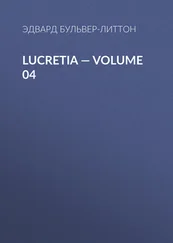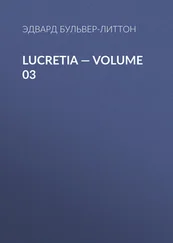Эдвард Бульвер-Литтон - Godolphin, Volume 2
Здесь есть возможность читать онлайн «Эдвард Бульвер-Литтон - Godolphin, Volume 2» — ознакомительный отрывок электронной книги совершенно бесплатно, а после прочтения отрывка купить полную версию. В некоторых случаях можно слушать аудио, скачать через торрент в формате fb2 и присутствует краткое содержание. Жанр: foreign_prose, literature_19, Европейская старинная литература, foreign_antique, на английском языке. Описание произведения, (предисловие) а так же отзывы посетителей доступны на портале библиотеки ЛибКат.
- Название:Godolphin, Volume 2
- Автор:
- Жанр:
- Год:неизвестен
- ISBN:нет данных
- Рейтинг книги:4 / 5. Голосов: 1
-
Избранное:Добавить в избранное
- Отзывы:
-
Ваша оценка:
- 80
- 1
- 2
- 3
- 4
- 5
Godolphin, Volume 2: краткое содержание, описание и аннотация
Предлагаем к чтению аннотацию, описание, краткое содержание или предисловие (зависит от того, что написал сам автор книги «Godolphin, Volume 2»). Если вы не нашли необходимую информацию о книге — напишите в комментариях, мы постараемся отыскать её.
Godolphin, Volume 2 — читать онлайн ознакомительный отрывок
Ниже представлен текст книги, разбитый по страницам. Система сохранения места последней прочитанной страницы, позволяет с удобством читать онлайн бесплатно книгу «Godolphin, Volume 2», без необходимости каждый раз заново искать на чём Вы остановились. Поставьте закладку, и сможете в любой момент перейти на страницу, на которой закончили чтение.
Интервал:
Закладка:
Edward Bulwer-Lytton
Godolphin, Volume 2
CHAPTER XV
Every day, at the hour in which Constance was visible, Godolphin had loaded the keeper, and had returned to attend upon her movements. They walked and rode together; and in the evening, Godolphin hung over her chair, and listened to her songs; for though, as I have before said, she had but little science in instrumental music, her voice was rich and soft beyond the pathos of ordinary singers.
Lady Erpingham saw, with secret delight, what she believed to be a growing attachment. She loved Constance for herself, and Godolphin for his father's memory. She thought again and again what a charming couple they would make—so handsome—so gifted: and if Prudence whispered also—so poor, the kind Countess remembered, that she herself had saved from her ample jointure a sum which she had always designed as a dowry for Constance, and which, should Godolphin be the bridegroom, she felt she should have a tenfold pleasure in bestowing. With this fortune, which would place them, at least, in independence, she united in her kindly imagination the importance which she imagined Godolphin's talents must ultimately acquire; and for which, in her aristocratic estimation, she conceived the senate the only legitimate sphere. She said, she hinted, nothing to Constance; but she suffered nature, youth, and companionship to exercise their sway.
And the complexion of Godolphin's feelings for Constance Vernon did indeed resemble love—was love itself, though rather love in its romance than its reality. What were those of Constance for him? She knew not herself at that time. Had she been of a character one shade less ambitious, or less powerful, they would have been love, and love of no common character. But within her musing, and self-possessed, and singularly constituted mind, there was, as yet, a limit to every sentiment, a chain to the wings of every thought, save those of one order; and that order was not of love. There was a marked difference, in all respects, between the characters of the two; and it was singular enough, that that of the woman was the less romantic, and composed of the simpler materials.
A volume of Wordsworth's most exquisite poetry had then just appeared. "Is not this wonderful?" said Godolphin, reciting some of those lofty, but refining thoughts which characterise the Pastor of modern poets.
Constance shook her head.
"What! you do not admire it?"
"I do not understand it."
"What poetry do you admire?"
"This."
It was Pope's translation of the Iliad.
"Yes, yes, to be sure," said Godolphin, a little vexed; "we all admire this in its way: but what else?"
Constance pointed to a passage in the Palamon and Arcite of Dryden.
Godolphin threw down his Wordsworth. "You take an ungenerous advantage of me," said he. "Tell me something you admire, which, at least, I may have the privilege of disputing,—something that you think generally neglected."
"I admire few things that are generally neglected," answered Constance, with her bright and proud smile. "Fame gives its stamp to all metal that is of intrinsic value."
This answer was quite characteristic of Constance: she worshipped fame far more than the genius which won it. "Well, then," said Godolphin, "let us see now if we can come to a compromise of sentiment;" and be took up the Comus of Milton.
No one read poetry so beautifully: his voice was so deep and flexible; and his countenance answered so well to every modulation of his voice. Constance was touched by the reader, but not by the verse. Godolphin had great penetration; he perceived it, and turned to the speeches of Satan in Paradise Lost. The noble countenance before him grew luminous at once: the lip quivered, the eye sparkled; the enthusiasm of Godolphin was not comparable to that of Constance. The fact was, that the broad and common emotions of the intellectual character struck upon the right key. Courage, defiance, ambition, these she comprehended to their fullest extent; but the rich subtleties of thought which mark the cold and bright page of the Comus; the noble Platonism—the high and rare love for what is abstractedly good, these were not "sonorous and trumpet-speaking" enough for the heart of one meant by Nature for a heroine or a queen, not a poetess or a philosopher.
But all that in literature was delicate, and half-seen, and abstruse, had its peculiar charm for Godolphin. Of a reflective and refining mind, he had early learned to despise the common emotions of men: glory touched him not, and to ambition he had shut his heart. Love, with him—even though he had been deemed, not unjustly, a man of gallantry and pleasure—love was not compounded of the ordinary elements of the passions. Full of dreams, and refinements, and intense abstractions, it was a love that seemed not homely enough for endurance, and of too rare a nature to hope for sympathy in return.
And so it was in his intercourse with Constance, both were continually disappointed. "You do not feel this," said Constance. "She cannot understand me," sighed Godolphin.
But we must not suppose—despite his refinements, and his reveries, and his love for the intellectual and the pure—that Godolphin was of a stainless character or mind. He was one who, naturally full of decided and marked qualities, was, by the peculiar elements of our society, rendered a doubtful, motley, and indistinct character, tinctured by the frailties that leave us in a wavering state between vice and virtue. The energies that had marked his boyhood were dulled and crippled in the indolent life of the world. His wandering habits for the last few years—the soft and poetical existence of the South—had fed his natural romance, and nourished that passion for contemplation which the intellectual man of pleasure so commonly forms; for pleasure has a philosophy of its own—a sad, a fanciful, yet deep persuasion of the vanity of all things—a craving after the bright ideal—
"The desire of the moth for the star."
Solomon's thirst for pleasure was the companion of his wisdom: satiety was the offspring of the one—discontent of the other. But this philosophy, though seductive, is of no wholesome nor usefnl character; it is the philosophy of feelings, not principles—of the heart, not head. So with Godolphin: he was too refined in his moralising to cling to what was moral. The simply good and the simply bad he left for us plain folks to discover. He was unattracted by the doctrines of right and wrong which serve for all men; but he had some obscure and shadowy standard in his own mind by which he compared the actions of others. He had imagination, genius, even heart; was brilliant always, sometimes profound; graceful in society, yet seldom social: a lonely man, yet a man of the world; generous to individuals, selfish to the mass. How many fine qualities worse than thrown away!
Who will not allow that he has met many such men?—and who will not follow this man to his end?
One day (it was the last of Godolphin's protracted visit) as the sun was waning to its close, and the time was unusually soft and tranquil, Constance and Godolphin were returning slowly home from their customary ride. They passed by a small inn, bearing the common sign of the "Chequers," round which a crowd of peasants were assembled, listening to the rude music which a wandering Italian boy drew from his guitar. The scene was rustic and picturesque; and as Godolphin reined in his horse and gazed on the group, he little dreamed of the fierce and dark emotions with which, at a far distant period, he was destined to revisit that spot.
Читать дальшеИнтервал:
Закладка:
Похожие книги на «Godolphin, Volume 2»
Представляем Вашему вниманию похожие книги на «Godolphin, Volume 2» списком для выбора. Мы отобрали схожую по названию и смыслу литературу в надежде предоставить читателям больше вариантов отыскать новые, интересные, ещё непрочитанные произведения.
Обсуждение, отзывы о книге «Godolphin, Volume 2» и просто собственные мнения читателей. Оставьте ваши комментарии, напишите, что Вы думаете о произведении, его смысле или главных героях. Укажите что конкретно понравилось, а что нет, и почему Вы так считаете.












